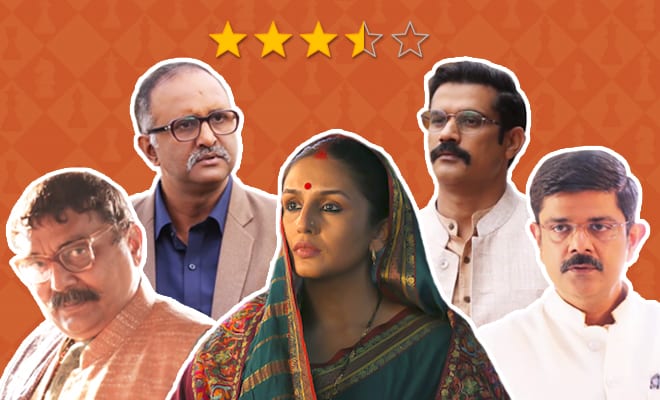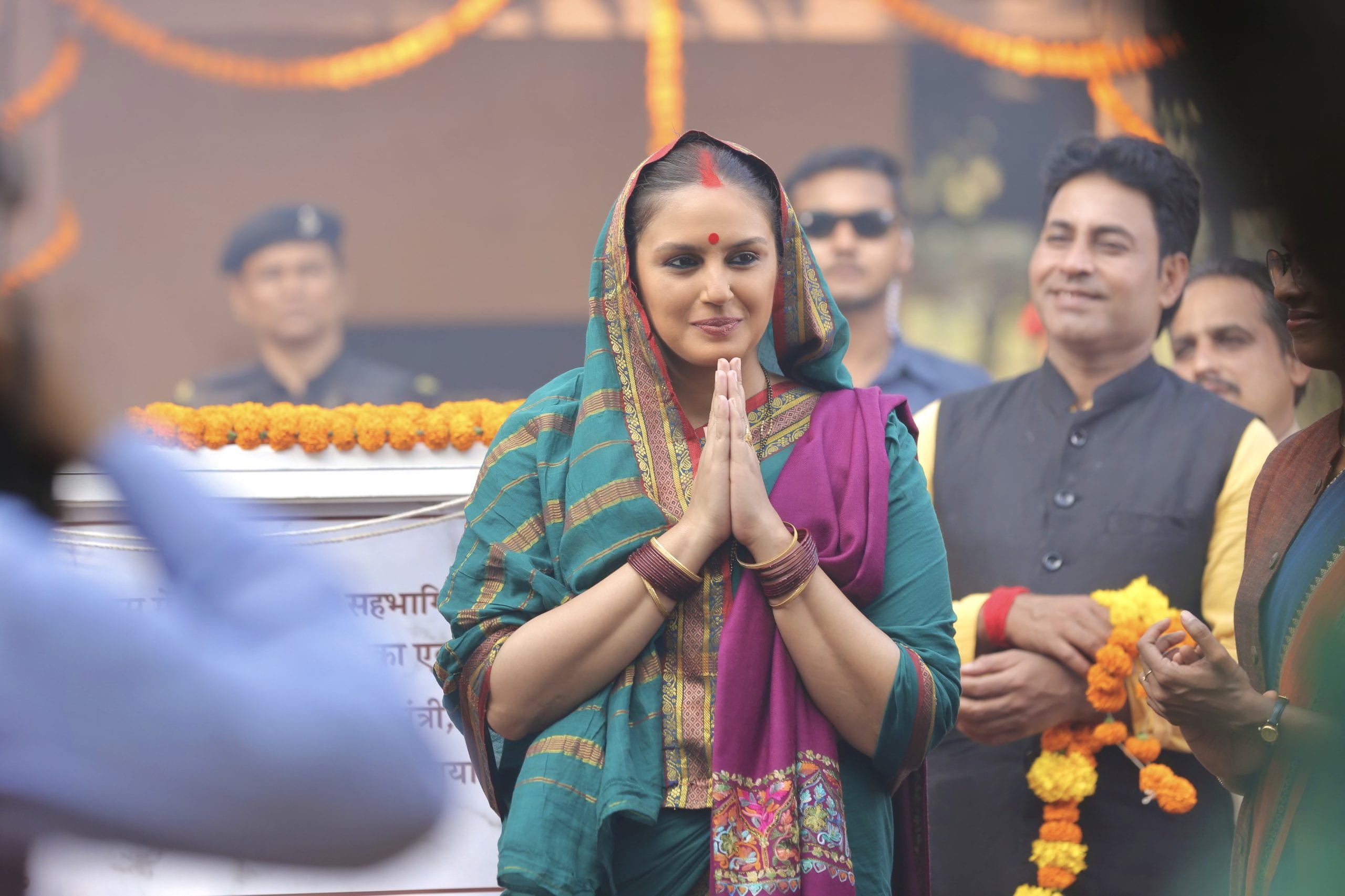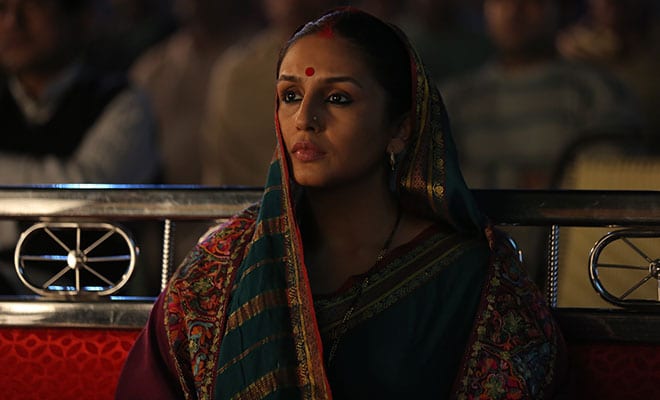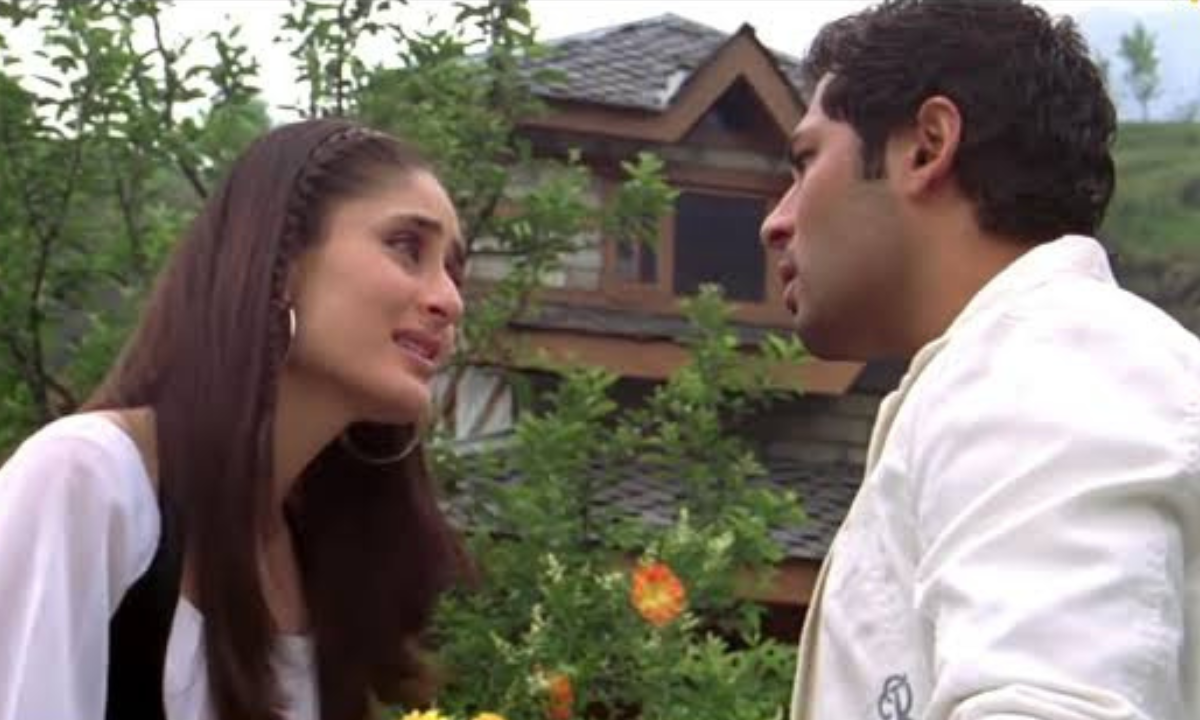‘Maharani’ Review: A Brilliant Huma Qureshi Gives Us A New Heroine To Root For In This Political Drama That Gets My Vote

If I asked you to list successful films where the heroine kicked ass and won over the bad guys, you could probably count the names on your hands. We don’t get much of that, do we? And now that we finally do, there is a lot of scrutiny on everything being ‘politically correct’, controversial enough to stir the pot but not too much to cause a spill, and basically just being perfect. I get it, we want better cinema and more responsible entertainment. But once in a while, it is nice to have film or a series that despite the holes in its logic or a few issues here and there, serves to uphold woman power, and give us seeti maar entertainment, while making a case against social issues that plague our times. Maharani, the new political drama on Sony LIV starring Huma Qureshi, Sohum Shah, Amit Sial, Vineet Kumar, Pramod Pathak, Kani Kusruti, Inaam Ul Haq, Sushil Pandey, Atul Tiwari, Aashiq Hussain, Kannan Arunachalam, and Harish Khanna, does that for me. The series, created by Subhash Kapoor and directed by Karan Sharma, is set in 90s Bihar, where the uneducated, illiterate wife of the Chief Minister is suddenly thrust into the male-dominated world of Indian politics.
View this post on Instagram
What’s Maharani about?
The plot seems pretty straightforward on the surface. It’s 1998, and the Chief Minister of Bihar, Bheema Bharti, is a man from a lower caste. He has won because of his charisma, popularity, and if we are being honest, due to the charade of being ‘inclusive’ on paper. His political party at its heart is still completely casteist. His ascension to power is a thorn in the sides of two people mainly—one, is Gaurishankar Pandey, a veteran party leader whose time on the throne just doesn’t seem to come. And another is Naveen Kumar, Bheema’s once-upon-a-time friend and now turned nemesis, who believes the throne was his because he is more capable and also because he is from an upper caste. While the political corridors of Bihar are rife with problems, there is rampant caste-based violence, chiefly due to clashes between two upper caste and lower caste gangs, both of which are backed by equal political power.
Amidst all this, a plan to assassinate CM Bheema Bharti is executed, but fails, with Bheema surviving the shooting but not being in a position to fulfil his CM duties. After much debate, discussions, campaigning and backstabbing, his wife Rani Bharti gets appointed as ‘technically’ Chief Minister. And now, Rani must navigate rampant sexism, motion of no-confidence against her government and the constant battle between doing what’s right and playing politics. As a side plot, Bihar’s coffers are bleeding dry due to *cue in Scam 1992 music* and Rani Sarkar has a fire lit right beneath their feet.
A reluctant queen. A throne up for grabs. Shifting loyalties, betrayals, power moves, entangled with religion and social hierarchy. Rooting for the underdog. I told you, Game of Thrones!
Also Read: 5 Thoughts We Had About ‘Maharani’ Trailer: Huma Qureshi Is A Reluctant Queen In This Game Of Thrones Set In 90s Bihar
Maharani is written and plotted quite well to keep you anticipating what will happen next
The first season has seven episodes, each roughly on the 40-42 minute mark. And in the first two episodes, it lays down the groundwork of the socio-political atmosphere in 1998 Bihar quite well, as it gives us Rani Bharti as the new Chief Minister. But only after sufficiently introducing the main players of the game to us, so that we can start deciding for ourselves who is friend and who is foe. This makes it incredibly easy to care for Rani, because she is the clueless one, and you can often anticipate the betrayal or the opponent’s move before she can.
Despite that, the series remains gripping. It’s well plotted and edited to not waste too much time in showing you the obvious. There are still a few scenes that could’ve been snipped a little to avoid a slight drag (like the treasury investigations) but I was decently engrossed in the story to care much.
There are multiple subplots that are introduced and that might find more meat in the second season. But none of them feel overwhelming. I also liked how the series managed to give us enough scenes of parallels between the two Chief Ministers and how they dealt with similar issues. Studies have proven that female leaders are doing a much better job in crisis (and even without), mainly due to a very key trait they have—empathy. And we can see that in play here.
View this post on Instagram
Rani Bharti’s character is truly well written and Huma Qureshi is a total queen with her nuanced performance!
I never really doubted the acting prowess of Huma Qureshi, but my biggest fear was that the writing shouldn’t fail her and make her this one-dimensional heroine. When I interviewed Huma, she told me that Rani Bharti was one of the most well-written female characters she has played. Evidently.
I watched Rani do her thing with such amusement, whether it was being a sassy wife, a caring mother or a clueless villager who didn’t know how to stand on the ceremony after suddenly being appointed a state head. Her innocence is instantly endearing. At some point, she reminded me of how I felt while watching Anil Kapoor be ‘Ek Din Ka CM’ in Nayak. You remember Nayak and how it felt amazing to watch an honest, ethical man who knew nothing about politics step up and make a difference? Yes, it was all superficial, and OTT, and no Maharani is much more real and grounded. But you remember that euphoric feeling of watching the underdog win? I am talking about that same fervour and the sheer joy but this time in watching a female politician flex her power, even if it is only technically hers.

On several occasions, you see Rani do or say things that might seem a tad ridiculous. But it is because of how her character has been etched and then played by Huma Qureshi with superb nuance, that you are down with it all. For example, her first time in the Assembly, when the opposition insults her in their motion of no-confidence against her. It bugged me that on several of such state occasions, nobody prepared Rani for the basic what to do and how to behave. Especially, if you know someone is as clueless as Rani is, how can you leave them to fend for themselves? Later on, we see that if only someone explains things to her properly in a way she understands, she actually gets it. So then why did it take so long ? It got a bit unnecessary and even filmy when Rani would then display this sudden bursts of confidence, even though she was still scared and new at this. But it is because of the writing and Huma Qureshi’s performance, that I let that slip.
What I also liked about Rani Bharti as a character is that there was no femininity lost. In fact, the change in her attitude and understanding of her power are gradual. Not always uniform, but still. For example, when she walks in on her bed-ridden husband holding a meeting with her cabinet members, she, the Chief Minster, tells him she can bring him his dinner later and offers to leave the room. But at the same time, when she discovers that she doesn’t like the decisions taken in that meeting, she goes ahead and changes it without consulting her husband because she is the CM and this is the Rani Sarkar.
The other characters might think it is arrogance or the position getting to her head. Some might even think Rani Bharti, the uneducated woman, what does she even know? But in reality, Rani is pretty much doing what she thinks is right, because it really is that white and black for her. Besides, the fact that she spent so much time running her home alone while her husband was away chasing his political career has equipped her with enough confidence to make decisions. She might have been shaken by the shock of being made the CM, but she only needed to be reminded of her confidence again.
Also Read: EXCLUSIVE! Huma Qureshi On ‘Maharani’, The Simplicity Of Rani Bharti, And Telling Women’s Stories In A Man’s World
View this post on Instagram
The politics of Maharani oscillates between realistic and superficial, but it attempt to touch the right notes
Maharani tackles, or is poised to tackle, a lot of themes. The obvious ones, of course, are casteism, sexism, and politics and corruption. And I won’t claim that the series does justice to all of it or that everything they show feels realistic at all times. But what I do like is that it is touching upon multiple issues that can plague a state when it’s got such a corrupt government at its helm. While I did think the Bihar Assembly scene was a little filmy, I loved Rani’s monologue for the parts where she throws the blame for her illiteracy and lack of education back on the state’s failure to provide education infrastructure in villages.
There’s also a nice weave in of culture, tradition and religious beliefs, such as with a godman angle, the coming together of rivals because of festivals, and a scene where a main character gets inspired by the Ramayana to make a difficult choice. These are all, as we know even now, things that motivate a lot of our politicians and grassroots even today. And it feels organic when the characters’ actions are shaped by them.
On sexism, casteism and violence porn
When I watched the Maharani trailer, I had concerns about the utter lack of any women other than the main character. In that, I probably mirror Rani Bharti’s feelings when she keeps looking at the politicians around her and finds there are barely women! A show that rides on woman power ought to get its ducks in the row at least in this sphere. Maharani does have two-three more female characters other than Rani. And one of them, the CM’s aide Kaveri, I like. Her camaraderie with Rani is endearing. The other, though, feels like very stereotypical power-hungry woman trope that I honestly could’ve done without. I honestly wish there are more women in the next season, because it would be interesting to see how Rani’s ascension to power influences these women in their lives and decisions. But also, women are a doubly marginalised section of the population and a theme that needs to be explored.
View this post on Instagram
The series, thankfully, does not indulge in violence porn, that most of the current crop of ‘set in UP/North India’ shows do. There is no shock value here for the heck of it, and I actually find that a welcome change. Although, some might complain that the caste issues and violence thus shown (or not shown) is perhaps too sanitary, and does not do justice to the severity of these issues IRL.
The performances are all brilliant, and they make you invested in these characters’ fates
One of my biggest complaints with Amazon Prime Video’s Tandav was that while they had a powerful ensemble, you never really got invested and cared for any of the characters, maybe perhaps just Sunil Grover’s. What I then liked about Maharani is that it’s characters have character, if you know what I mean. I I think both Vineet Kumar and Amit Sial are amazing performers, and I am looking forward to seeing Sohum Shah’s Bheema Bharti deal with his CM wife in the next season. I also thought Kani Kusruti as Kaveri and Inaam Ul Haq as Parvez Alam were really good. But I’ll be honest, the entire cast—Sushil Pandey, Atul Tiwari, Aashiq Hussain, Pramod Pathak, Kannan Arunachalam, and Harish Khanna—have done a pretty great job.
Also Read: Army Of The Dead Review: Snyder’s Beautifully Made Zombie Heist Film Starring Huma Qureshi Is A Total Blast Of A Bloodbath
Verdict: Rani Sarkar gets my vote!
There’s a major political dilemma I had when I watched Maharani, in that the arguments against Rani Bharti as a CM are not exactly invalid. Don’t we make fun of our uneducated politicians today? Don’t we trash nepotism? There are many of Rani’s decisions that are often based on emotion and how the person before her makes her feel than on political acumen, strategy or the greater good. And if we’ve learnt anything from Daenerys on GoT, we know how quickly good intentions driven by emotion can turn bad.
But here’s where I want to abandon some of that logic and cut Rani, our heroine, some slack. Because God knows, we’ve done a lot more for our male protagonists who came before her in similar positions.
To borrow from Rani Bharti and put it directly and simply—I liked Maharani. I really enjoyed watching a woman come into her own power and do what she wants to do with it, according to what she thinks is right, while the men around her have their lives upended wondering if it is a stupid mistake or a genius masterstroke. They deserve it, they upended her’s in the first place. And perhaps her being driven by emotion might not be such a bad thing after all. It would actually be interesting to see if power does corrupt, or shakes Rani’s morals even a little bit or if she remains pure and still manages to stay queen.
Watch Maharani for the struggle of being a female leader, a nuanced performance by Huma Qureshi and how each actor has made characters their own, and for the socio-political themes it is trying to explore.
Maharani is currently streaming on Sony LIV.


















